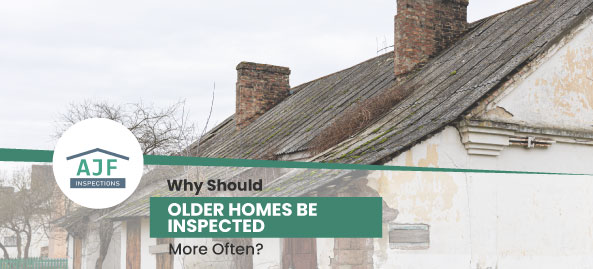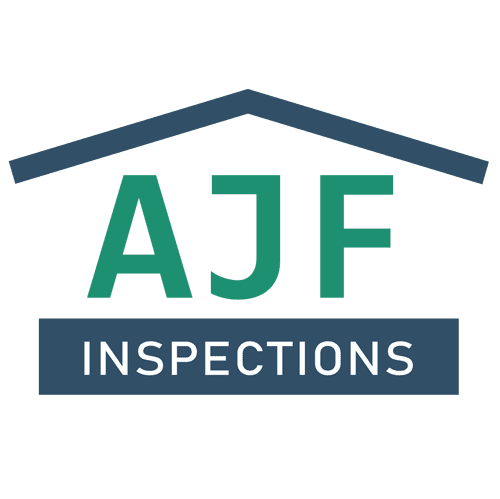
Why Should Older Homes Be Inspected More Often?
Home inspections are essential for evaluating a property’s condition and spotting potential problems. All homeowners should prioritize regular home inspections, but older homes need more frequent care. A home inspection in Phoenix is a highly valuable practice for assuring a building’s functionality, durability, and safety. Homeowners can prevent costly surprises, maintain the structural integrity of their cherished residences, and address maintenance and repair needs in advance by doing routine inspections on older properties. This blog discusses the value of regular home inspections for older homes and emphasizes the benefits of proactive maintenance.
The Need for Frequent Inspections in Older Homes
Many homeowners find charm and character in older homes to be appealing. However, wear and tear, structural problems, and outdated systems are more likely to occur as the home age. It is essential to carry out regular home inspection Phoenix to guarantee these beloved abodes’ security, resilience, and functionality. Home inspections are crucial for seeing and fixing possible issues before they become expensive or dangerous.
Safety is one of the main reasons for more frequent inspections of older homes. A house’s foundation, walls, and roofs might deteriorate over time due to weathering, natural settling, or inadequate maintenance. Regular inspections enable homeowners to recognize and take immediate action on structural issues. Homeowners can take proactive steps to guarantee the safety of their families and protect their investments by spotting indicators of foundation movement, wall cracks, or roof leaks.
Another crucial area that requires maintenance in older homes is the plumbing systems. Corrosion in old pipes can result in leaks, water damage, and even health risks from contaminated water. Regular inspections allow Homeowners to uncover plumbing problems including concealed leaks, outdated materials like lead pipes, or insufficient water pressure. Early detection of problems can reduce the need for expensive repairs and possible health issues.
Electrical wiring is another crucial area in older homes needing thorough inspection. Older wiring systems might not adhere to safety regulations and present a fire risk. Additionally, older homes might not have enough electrical power to meet the demands of modern appliances and technologies. A certified home inspector in Phoenix may identify outdated electrical panels, overloaded circuits, and damaged wiring, enabling homeowners to replace and improve the security of their electrical systems.
Issues Found in Older Homes
In older homes, pest problems are a common concern. Pests like termites, mice, or insects can enter a building through cracks in the foundation, wall gaps, and deteriorating exteriors over time. Regular inspections can spot early indications of infestation, allowing homeowners to act quickly and limit significant harm. The home’s structural integrity can be protected, and a healthy living environment can be maintained with prompt pest control measures.
Another big problem that older homes could have is the spread of mold and mildew. Mold growth that is dangerous and likely to cause respiratory issues and allergic reactions can result from poor ventilation, moisture intrusion, or inadequate insulation. Regular inspections can spot moist-prone areas, including attics, basements, and bathrooms. Homeowners can preserve a secure and healthy living space by addressing the underlying moisture problems and eradicating any mould growth that may be present.
An integral part of every house is the HVAC (heating, ventilation, and air conditioning) system, and older homes may have aging systems that need annual inspection and maintenance. Regular inspections can spot inefficiencies, malfunctions, or potential safety risks, allowing homeowners to fix and possibly upgrade to safer and more energy-efficient equipment. Higher utility expenses may be the result of less energy-efficient older furnaces, boilers, or air conditioning units. Furthermore, obsolete systems might cause safety issues like carbon monoxide leakage.
In older homes, insulation and energy efficiency are crucial factors. Inadequate insulation can result in energy consumption, heat loss, and drafts. Additionally, older homes might not have modern energy-saving elements like double-pane windows or energy-efficient appliances. Regular inspections may evaluate the insulation’s state, pinpoint where heat is escaping, and offer suggestions for enhancing energy efficiency. Homeowners may save energy costs, improve comfort, and help the environment by fixing insulation and energy efficiency issues.
Moreover, foundation settling is a typical problem in older homes that, if not quickly fixed, can cause structural issues. The foundation of a house may shift or settle with time, leading to uneven floors, sticking doors and windows, and wall cracks. Through regular inspections, homeowners can identify indicators of foundation movement and take appropriate action, such as foundation repairs or reinforcement. Early foundation settling repair can stop further harm and keep the house’s structural integrity.
Another essential justification for regular inspections is to protect older properties’ historical significance and unique architectural elements. Older houses exhibit outstanding craftsmanship, period-specific details, and historical value. Regular inspections may help identify any areas that need repair or preservation to preserve the home’s character and authenticity. Homeowners can ensure the house keeps its historical significance and legacy by taking proactive measures to remedy these problems.
When Should You Schedule a Home Inspection for Older Homes
It is essential to schedule a house inspection for older properties to find any issues and guarantee the property’s general condition. But, when is the ideal time for scheduling this important assessment?
It is strongly advised to schedule a home inspection as part of the due diligence process if you are buying an older house. The inspection should ideally occur after your offer on the property has been accepted. This period of opportunity enables you to discuss any necessary alterations or fixes based on the inspection report before agreeing to the purchase. You can make a well-informed decision about the property and ensure that you are aware of any possible issues that may require addressing by doing the inspection early in the purchasing process.
If you already own an older home, scheduling regular inspections is crucial for preventative maintenance of the property’s condition. It is better to conduct a home inspection at least once a year to evaluate the general condition of the house and determine any maintenance or repair requirements. Regular inspections may help in the early detection of concerns and stop them from growing into more serious problems that are more expensive to address. Additionally, it is advisable to schedule an inspection right away to evaluate and handle any concerns you may have, such as plumbing leaks, electrical problems, or structural changes.
Before starting significant renovations or remodeling projects, scheduling a home inspection for older homes is a good idea. You can identify any underlying problems that might need fixing before moving forward with the project by inspecting them before starting the renovation. This may help you in avoiding surprises or unforeseen costs when renovating.
Are you looking for the best home inspectors in Phoenix? Look no further than AJF Engineering! Schedule your inspection today and experience top-notch service from our expert team. Don’t compromise on quality – choose AJF Engineering for all your home inspection needs.
